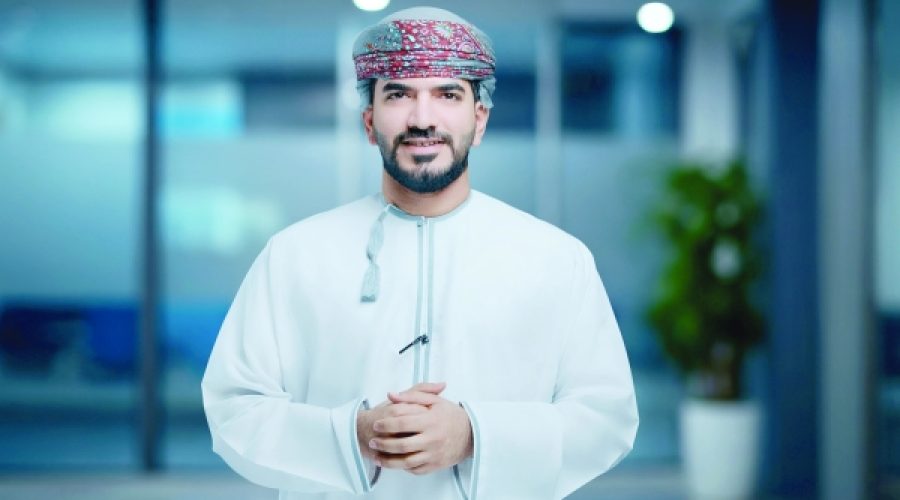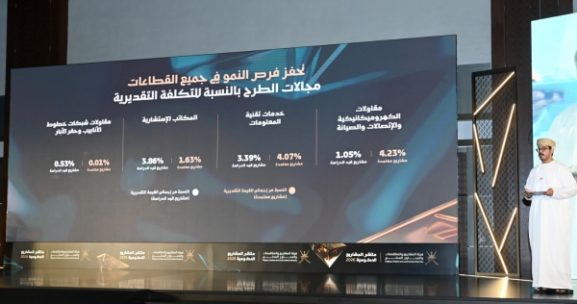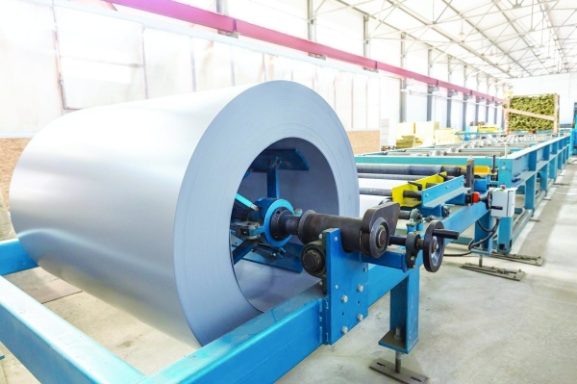سری تابستانی دقم: چگونه حفظ استعدادها، رشد کسب و کار و فرصتهای سرمایهگذاری در عمان را افزایش میدهد
SEZAD توسعه نیروی کار را در دوره تابستانی دقم پیش میبرد
DUQM، ۱۲ آگوست - منطقه ویژه اقتصادی الدقم (SEZAD) روز سهشنبه با یک جلسه یک ساعته متمرکز بر توسعه نیروی کار - که عنصری حیاتی در استراتژی کسب و کار است - به اولین دوره تابستانی الدقم خود ادامه داد. در چشمانداز به سرعت در حال تحول امروز، تأمین، حفظ و پرورش استعدادهای مناسب به اندازه جذب سرمایهگذاری یا گسترش به بازارهای جدید حیاتی است.
این جلسه که توسط حنان السیابی، رئیس بخش بازاریابی و توسعه کسب و کار در SEZAD برگزار شد، با حضور عوف العوفی، رئیس بخش مدیریت استعدادها در بانک توسعه، برگزار شد. او بر اهمیت ایجاد تیمهای انعطافپذیر که قادر به سازگاری سریع، کار با هدف مشخص و تشخیص فرصتها در تغییر باشند، تأکید کرد.
العوفی اظهار داشت: «موفقترین سازمانها میدانند که استعداد یک دارایی ایستا نیست، بلکه یک قابلیت پویا و در حال تکامل است. بحث ما بر پرورش رهبرانی که با ابهام راحت هستند و تیمهایی که میتوانند تمرکز خود را حفظ کنند و در عین حال به سرعت با شرایط وفق پیدا کنند، متمرکز بود. دستیابی به این هدف مستلزم سرمایهگذاری در توسعه مهارتها، پرورش فرهنگ مناسب و اجرای سیستمهایی است که افراد را قادر میسازد تا بهترین عملکرد خود را داشته باشند.»
منطق چنین سرمایهگذاریهایی قانعکننده است. گزارش «وضعیت محیط کار جهانی ۲۰۲۴» گالوپ نشان میدهد که تنها ۲۱۱ هزار نفر از کارمندان در سراسر جهان احساس میکنند که به طور فعال در محل کار خود مشارکت دارند و عدم مشارکت سالانه تقریباً ۱ هزار و ۴ هزار و ۸.۸ تریلیون دلار برای اقتصاد جهان هزینه دارد - حدود ۹۱ هزار و ۳ هزار نفر از تولید ناخالص داخلی جهانی. علاوه بر این، انجمن مدیریت منابع انسانی تخمین میزند که جایگزینی یک کارمند میتواند تا دو برابر حقوق سالانه او هزینه داشته باشد، که شامل استخدام، آموزش، از دست دادن بهرهوری و تأثیر فرهنگی میشود. با توجه به اینکه طبق گزارشها بیش از نیمی از نیروی کار به دنبال فرصتهای جدید هستند، حفظ نیروی کار به جای یک نگرانی صرف در حوزه منابع انسانی، به یک عامل حیاتی در عملکرد کسبوکار تبدیل شده است.
گفتگوی روز سهشنبه فراتر از رویکردهای سنتی منابع انسانی رفت و چرخه کامل عمر کارکنان را بررسی کرد - از جذب هدفمند که ارزشهای سازمانی را در بر میگیرد، تا مسیرهای شغلی با تأکید بر عدالت، شمول و رفاه. بحثها همچنین به راههایی برای افزایش شفافیت در فرصتهای توسعه و چگونگی ایجاد محیطهای کاری که کارکنان به طور فعال تصمیم میگیرند در آن بمانند، در آن مشارکت کنند و از آن نوآوری کنند، پرداخت.
این گفتگو همچنین به جلسه هفته گذشته در مورد هوش مصنوعی و اتوماسیون مرتبط شد و تأکید کرد که با تغییر شکل مهارتهای مورد نیاز توسط فناوری، استراتژیهای مؤثر هوش مصنوعی باید با استراتژیهای قوی منابع انسانی - با تمرکز بر آموزش مهارتهای جدید، یادگیری مادامالعمر و رهبری مجهز به پیمایش تحول - همراه شوند.
برای السیابی، ارتباط بین استعداد و مزیت رقابتی واضح است. او اظهار داشت: «دقم برای بلندمدت ساخته شده است. این جلسات، مستاجران ما را به ابزارها و طرز فکری مجهز میکند تا نیروی کار خود را با همان فداکاری که در پروژههای زیرساختی به کار میبرند، توسعه دهند. تابآوری نیروی کار فقط یک مسئله منابع انسانی نیست؛ بلکه مستقیماً بر رقابتپذیری تأثیر میگذارد.»
مجموعه تابستانی دقم در ۵ آگوست با حضور سعید ابوالغفور، مدیرعامل Star Drones، با برگزاری جلسهای در مورد هوش مصنوعی و اتوماسیون آغاز شد. این مجموعه در طول آگوست با بحثهایی در مورد زنجیرههای تأمین جهانی و فرهنگ محیط کار ادامه خواهد یافت - هر کدام یک گفتگوی مختصر و کاربردی یک ساعته که برای ارائه بینشهای عملی طراحی شده است.
در عصری که استعداد از نظر ارزش با سرمایه رقابت میکند، دقم نه تنها خود را به عنوان یک قطب لجستیک و صنعتی، بلکه به عنوان مرکزی که سازمانها روی افراد خود سرمایهگذاری میکنند تا هم آینده خود و هم سهم منطقه در اقتصاد جهانی را شکل دهند، تثبیت میکند.
تحلیل ویژه از عمانت | بازار عمان را کشف کنید
تمرکز روی توسعه نیروی کار و تابآوری استعدادها در SEZAD Duqm نشانگر یک تغییر استراتژیک برای کسب و کارهای عمانی است و تأکید میکند که استراتژیهای منابع انسانی باید در کنار پیشرفتهای تکنولوژیکی مانند هوش مصنوعی و اتوماسیون تکامل یابند.برای سرمایهگذاران و کارآفرینان، این فرصتی جذاب برای ایجاد مزیت رقابتی با سرمایهگذاری در ... ارائه میدهد. یادگیری مداوم، توسعه شغلی منصفانه و فرهنگهای فراگیر در محیط کار- عوامل حیاتی برای جذب و حفظ استعدادها در بازاری که به سرعت در حال تغییر است.



